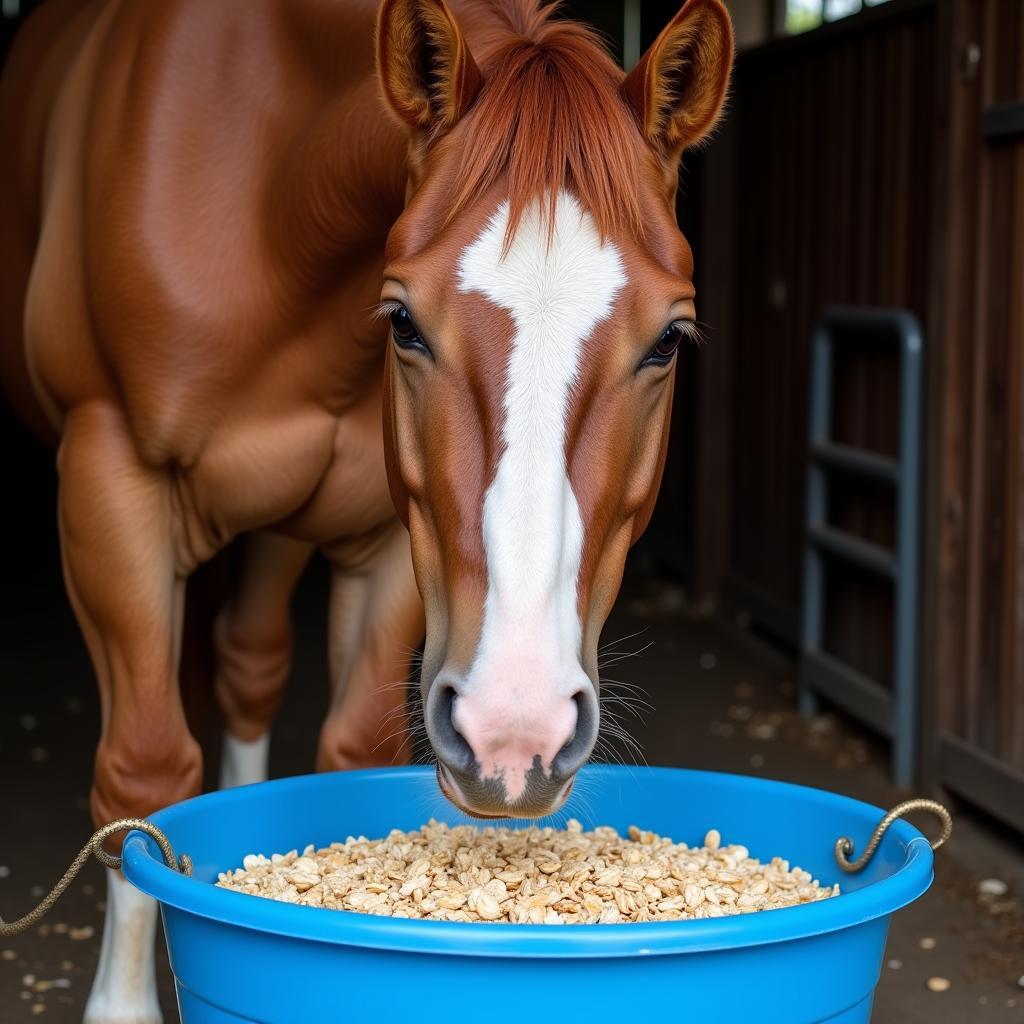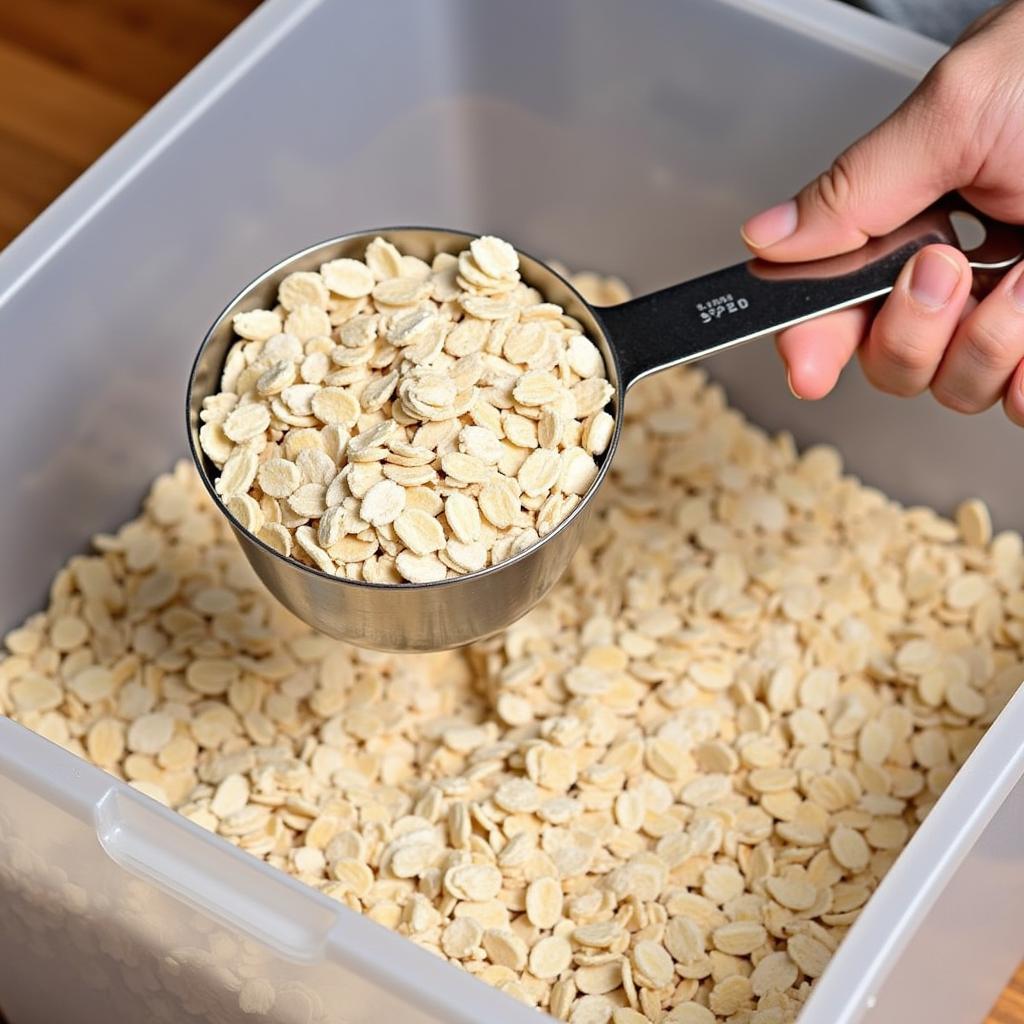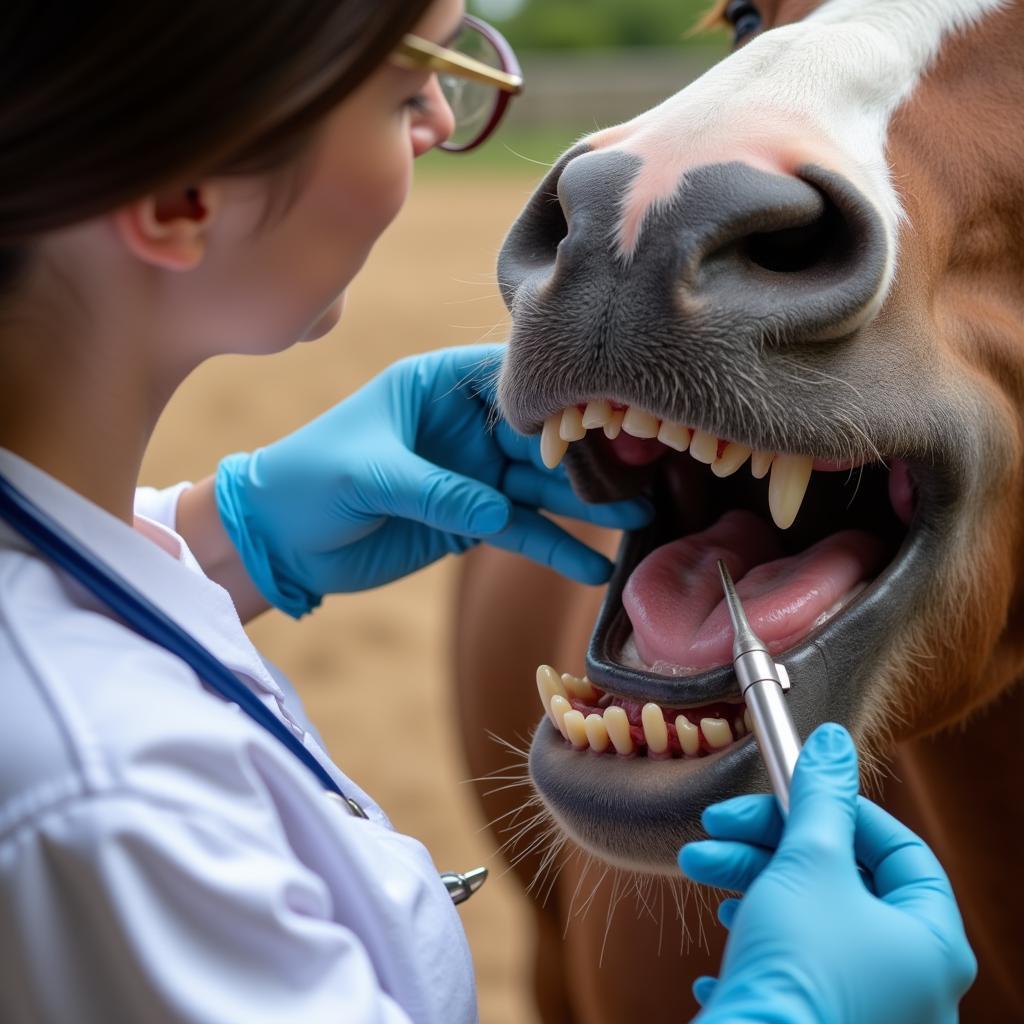Horse Oats are a cornerstone of equine diets worldwide, providing essential nutrients and energy for optimal performance and health. Understanding the benefits, different types, and proper feeding practices of horse oats is crucial for every horse owner. This guide will delve into everything you need to know about this vital feed source.
Decoding the Nutritional Powerhouse: Why Horse Oats Matter
Horse oats provide a valuable source of energy, primarily in the form of starch, which is slowly digested and released, offering sustained energy throughout the day. They are also rich in fiber, promoting healthy digestion and preventing colic. Oats contain essential vitamins and minerals, including B vitamins, vitamin E, and minerals like manganese, which support overall well-being.
Oats also contribute to a horse’s healthy coat and hoof growth. The high fiber content helps regulate the digestive system and prevent issues like impaction colic. For performance horses, oats offer sustained energy, allowing them to maintain stamina during training and competitions.
 Horse Enjoying Oats from a Bucket
Horse Enjoying Oats from a Bucket
Exploring Different Types of Horse Oats
There are several types of horse oats available, each with its own characteristics and benefits:
- Whole Oats: These are the least processed form of oats and require more chewing, which can be beneficial for dental health. However, they may not be as easily digested as other forms.
- Rolled Oats: These are steamed and rolled flat, making them easier to digest and more palatable for horses. They are a popular choice for many horse owners.
- Crimped Oats: Similar to rolled oats, crimped oats are processed to increase their surface area, making them even more digestible than whole oats.
- Oat Groats: These are the kernels of the oat grain with the hull removed. They are highly digestible and offer a concentrated source of nutrients.
Choosing the right type of oats depends on your horse’s individual needs and digestive capabilities. Consult with your veterinarian or equine nutritionist to determine the best option for your horse.
How Much Oats Should I Feed My Horse?
The appropriate amount of oats for a horse depends on several factors, including age, activity level, weight, and overall health. While oats can be a valuable part of a horse’s diet, it’s essential to avoid overfeeding. Too much starch can lead to digestive upset and metabolic issues.
 Accurately Measuring Horse Oats
Accurately Measuring Horse Oats
A good starting point is to feed oats in moderation, gradually increasing the amount based on your horse’s individual needs. It’s always best to introduce new feeds slowly to allow the horse’s digestive system to adapt.
Are Horse Oats Right for My Horse? Addressing Specific Needs
While oats are generally a good feed choice for many horses, certain situations may require adjustments or alternatives:
Horses with Metabolic Issues:
Horses prone to conditions like insulin resistance or Cushing’s disease should consume oats with caution due to their starch content. Consult your veterinarian for guidance.
Horses with Dental Problems:
Horses with dental problems may have difficulty chewing whole oats. Rolled or crimped oats are easier to chew and digest and are often a better option.
Senior Horses:
Older horses with compromised digestive systems may benefit from highly digestible forms of oats like oat groats or well-soaked rolled oats.
 Veterinarian Checking Horse's Teeth
Veterinarian Checking Horse's Teeth
Horse Oats: A Timeless Feed for Equine Health
From promoting healthy digestion to providing sustained energy, horse oats offer a wide range of benefits for horses of all ages and activity levels. By understanding the different types of oats available and following appropriate feeding practices, you can ensure that your horse receives the nutritional support it needs to thrive.
Remember, consulting with a qualified veterinarian or equine nutritionist is always recommended to tailor a feeding plan that meets your horse’s unique requirements.
FAQs
-
Can I feed my horse oats as its only feed source?
No, a balanced diet for a horse should include forage like hay or pasture, along with other feed sources to meet all nutritional needs. -
Are oats suitable for all breeds of horses?
Generally, yes. However, individual horses may have specific dietary needs or sensitivities. -
How should I store horse oats?
Store oats in a cool, dry, and rodent-proof container to maintain freshness and prevent spoilage. -
Can I mix oats with other feeds?
Yes, oats can be mixed with other grains, supplements, and concentrates to create a balanced ration. -
What are the signs of oat overload in a horse?
Signs may include digestive upset, colic, and changes in behavior. -
How can I tell if my horse is allergic to oats?
Allergic reactions are rare, but symptoms could include skin irritation, hives, and respiratory problems. Consult your vet if you suspect an allergy. -
Are there alternatives to oats for horses with dietary restrictions?
Yes, alternatives include beet pulp, rice bran, and various commercially available low-starch feeds.
You might also be interested in these articles on our website: “Understanding Equine Nutrition” and “Choosing the Right Hay for Your Horse.”
For further assistance or personalized advice on horse care and nutrition, please contact us at Phone: 0772127271, Email: [email protected], or visit our facility at QGM2+WX2, Vị Trung, Vị Thuỷ, Hậu Giang, Việt Nam. Our dedicated customer care team is available 24/7.